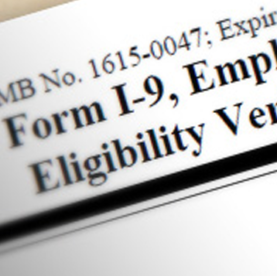The Weekly Round-Up: Immigration Legislation Fails in Congress and New York Immigration Court to Conduct Exclusively Video Hearings
Immigration Bills Fail in Congress, Leaving Future Uncertain
Despite months of negotiations and discussions on a wide variety of immigration issues, Congress was unable to pass any comprehensive immigration legislation in the past two weeks. It is now uncertain whether any type of immigration reform will be implemented prior to the November midterm elections.
Last week, the first bill, sponsored by Rep. Robert Goodlatte of Virginia – which would have, among other things, reduced legal immigration to the United States, provided additional funding for border security, required companies to use E-Verify, and provided three-year renewable employment cards for DACA recipients – failed in the House of Representatives by a margin of 231-193. This week, the Border Security and Immigration Reform Act – which aimed to improve the merit-based immigration system, provide additional funding for border security, and provide a pathway to citizenship for some DACA recipients – also went down in defeat, with 301 voting “no” and 121 voting “yes.”
With members of Congress preparing for their midterm campaigns, it is unclear whether any new legislation will be brought for a vote prior to the elections, especially in light of President Trump’s suggestion that lawmakers wait until after November to propose a new bill for review. The NMM Immigration Blog will continue to cover new immigration legislation as it develops.
New York Immigration Court to Begin Hearings Exclusively by Video
One New York Immigration Court has indicated it will start hearing cases by video only.
Immigration and Customs Enforcement (ICE) expressed concern about security transporting individuals from various detention facilities to the court, located at 201 Varick Street in Manhattan after people began protesting on the street outside the court. An ICE spokesperson stated that the change was made “to ensure the safety of ICE employees, the court, the public, and detainees.”
Some immigration lawyers expressed concerns about due process, indicating that their clients, who are facing deportation, would not get fair hearings via video. Sarah Deri Oshiro, managing director for the Immigration Practice for the Bronx Defenders, a non-profit legal defense group, stated that “the fact that someone is not physically in the courtroom really hinders a lot of the less tangible aspects of our successful representation,” adding that a “judge is less able to assess a person’s credibility if they are not sitting in the room.”
The decision to increase the use of video hearings comes within the larger debate over the backlog within the entire immigration court system – there are only 334 immigration judges in the United States to handle close to 700,000 currently pending cases – and how cases can be processed expeditiously while still protecting the due process rights of the immigrant respondents.





